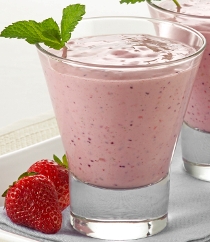The 2013 Annual Meeting of American College of Sports Medicine was chock-full of useful nutrition information for athletes and parents of athletes. In the second of a series, I discuss some additional research findings from the ACSM meeting:
- Protein supplements: It is doubtful that serious athletes need protein supplements.
- Among 30 competitive 14- to 20-year old male and female athletes living at a sports training facility (
 IMG Academies), all of the males and 75% of the females consumed more than the recommended protein intake (about 0.5 to 0.75 g protein/lb (1.2 to 1.7 g pro/kg)). The dietary assessments indicate they consumed about 1 g protein/lb (2 g pro/kg) via their regular daily meals and snacks.
IMG Academies), all of the males and 75% of the females consumed more than the recommended protein intake (about 0.5 to 0.75 g protein/lb (1.2 to 1.7 g pro/kg)). The dietary assessments indicate they consumed about 1 g protein/lb (2 g pro/kg) via their regular daily meals and snacks. - Although athletes can easily consume adequate protein from regular meals, a survey of 150 male and female NCAA Division-I collegiate athletes indicates more than half of them use protein supplements. A waste of money?
- Among 30 competitive 14- to 20-year old male and female athletes living at a sports training facility (
- Seals' diet: builds muscles, not for fuel: Among 215 Navy SEALs, 86% ate less than the recommended carbohydrate intake (>5 g carb/kg). Like many serious athletes, the SEALs chose a diet that to help build, but not optimally fuel, muscles.
- Commercial recovery drinks versus homemade? It is doubtful that commercial drinks are better. A study comparing a fruit smoothie (made with milk, banana, berries) with a commercial product showed similar recovery benefits for subjects who did muscle-damaging exercise. Both recovery drinks offered the same amount of calories, protein, and carb. The bottom line: Food works!
- Cyclists need better recovery diet: Even experienced veteran cyclists do a poor job of refueling. Only 38% of 212 competitive cyclists chose a carbohydrate-protein mix. Because residual fatigue from both training and competition strongly influences the ability to perform optimally, cyclists would be wise to pay attention to a proper recovery diet!
- Rehydrate, but not just near bedtime! Although adequate hydration contributes to optimal performance, it can disrupt sleep in athletes who rehydrate primarily at the end of the day. A study of 35 male rugby players found that three-quarters of them did a good job of rehydrating at a 10-day training camp. However, those who hydrated well at night tended to wake up at least three or more times to urinate. For better sleep, drink more fluids right when you finish exercising, instead of near bedtime.
- Anti-oxidants don't boost immune system: For 17 days, well-trained cyclists took an antioxidant supplement containing freeze-dried fruit-vegetable juice powder. The supplement offered no boost in immune function beyond that created by exercise itself. Instead of antioxidant pills, you might want to buy a health club membership?
- Time-released buffers work best: Sprinters, rowers and other competitive athletes who do high intensity exercise sometimes use a buffer (such as beta-alanine or sodium bicarbonate) that delays the onset of fatigue associated with lactic acid. Athletes who use beta-alanine often complain about "beta-tingles," a tingling and itchy side effect. The itchiness is not resolved by taking an antihistamine, because the response is activated by the nervous system, not the immune system. A solution: time-released beta-alanine capsules.
- Buffer plus baking soda: Would combining beta-alanine with sodium bicarbonate be more effective than either buffer alone at enhancing an athlete's ability to perform intense exercise? Perhaps, but they would have to be able to tolerate the sodium bicarb. Rowers in a 2000-meter time trial experienced more benefit from the beta-alanine alone (6.5 seconds faster) vs. sodium bicarb alone (3 seconds faster). Both taken together added a 1-second bonus, enough to possibly be beneficial.
- Stomach pains: Intestinal issues are a major problem among athletes. Among a group of 36 triathletes in the Lake Placid Ironman, 81% complained of stomach pain and cramping. Athletes who consumed either adequate or inadequate fluids both reported similar GI problems. The symptoms were generally mild and did not correlate with finish time.
- Swish! If you cannot tolerate pre-exercise food due to nerves (or are fasting, as happens with some religious holidays), try swishing with water or a sports drink. Either can help you perform better. Compared to cyclists who did not swish, those who rinsed their mouth with either regular or calorie-free sports drinks during a 30-minute warm-up performed about 4 minutes faster (13 vs. 17 min.) in a 10-K time trial.
- Use it or lose it: If you have ever broken a bone, you were likely dismayed when the cast was removed and you saw how much the muscle shrank. Muscles lose size and strength within 5 days. In a study of young men (average age: 23 years) who had a full-leg cast on for 5 or 14 days, the size of their quadriceps decreased from baseline by 3.5% in 5 days and 8.5% in 14 days. Strength declined by 8.5% and 23% in 5 and 15 days, respectively. The message: use it or lose it.
©Nancy Clark 2013
Nancy Clark , MS RD CSSD is MomsTeam's sports nutrition expert, a Board
Certified Specialist in Sports Dietetics and best-selling author. She
counsels both fitness exercisers and competitive athletes in her private
practice in the Boston-area. Her books, including Sports Nutrition Guidebook, Food Guide for Marathoners and Cyclist's Food Guide are available at www.nancyclarkrd.com and www.sportsnutritionworkshop.com.
, MS RD CSSD is MomsTeam's sports nutrition expert, a Board
Certified Specialist in Sports Dietetics and best-selling author. She
counsels both fitness exercisers and competitive athletes in her private
practice in the Boston-area. Her books, including Sports Nutrition Guidebook, Food Guide for Marathoners and Cyclist's Food Guide are available at www.nancyclarkrd.com and www.sportsnutritionworkshop.com.
Posted September 9, 2013









